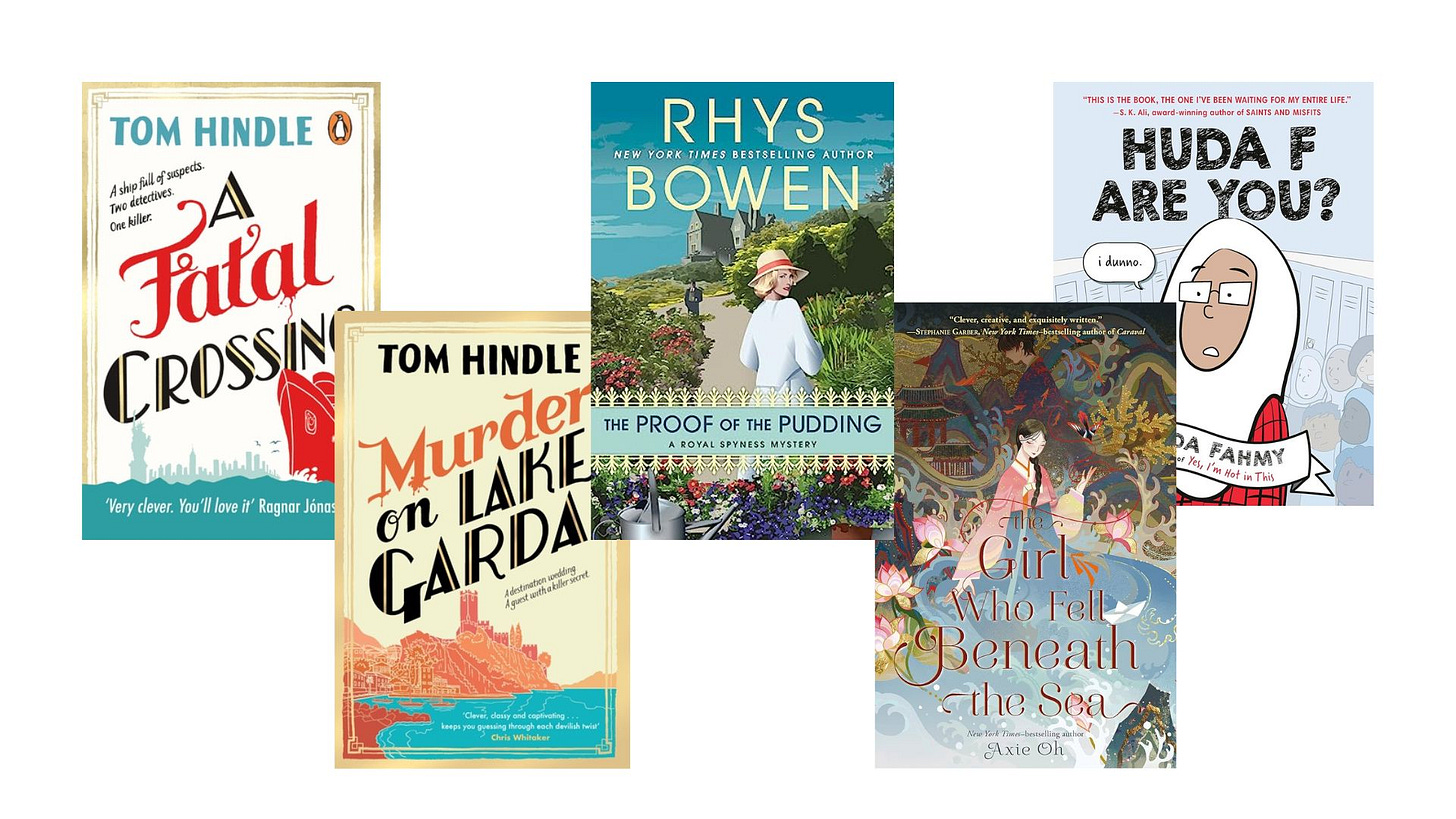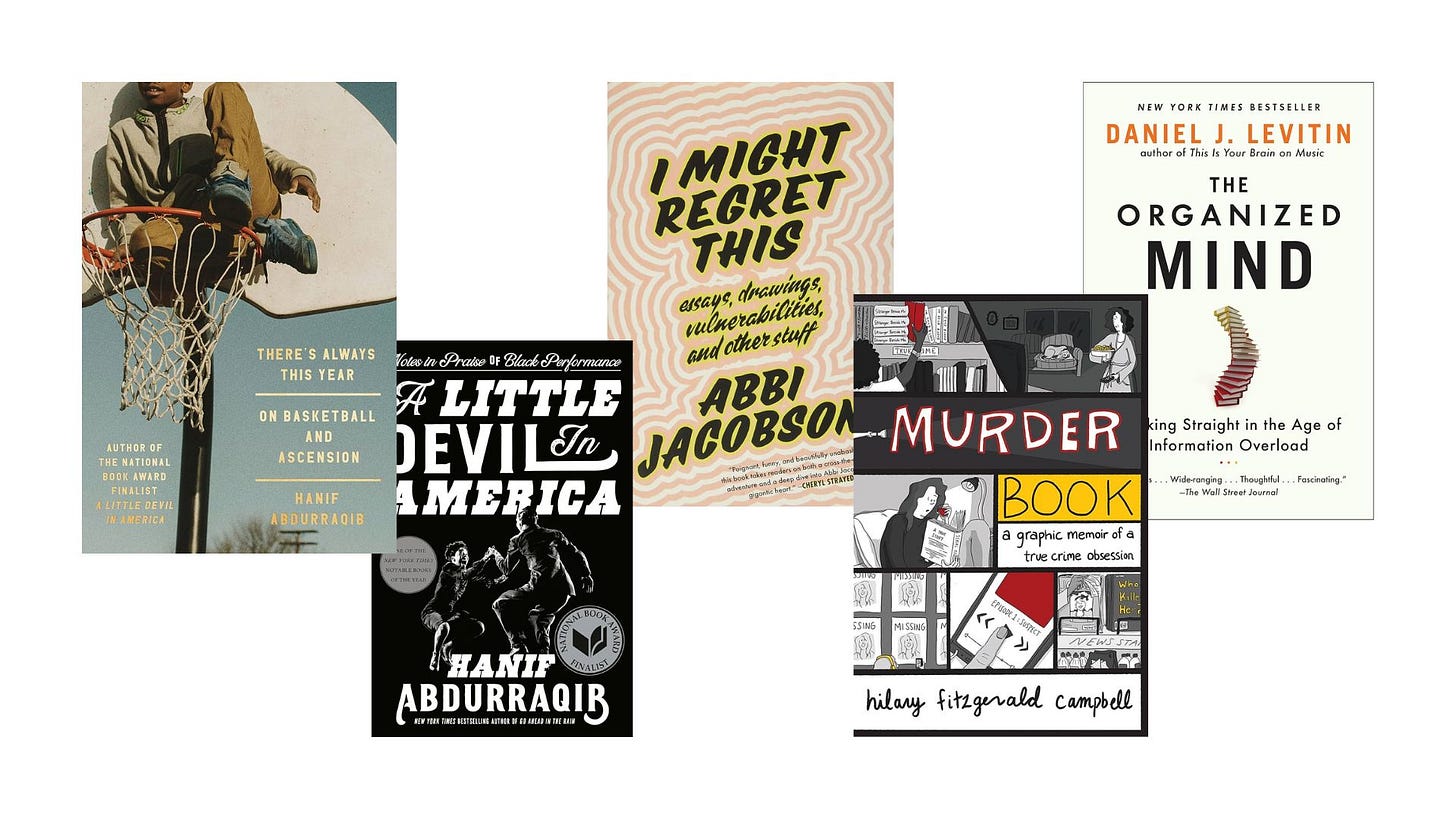There’s nothing funnier to me than realising that my bookworm qualities haven’t changed since childhood.
It only seemed like I read more books then because so many of them were quicker to peruse and skim. This doesn’t mean that they were of lower quality, just that the amount of free time I had plus my penchant for physical books made it seem as if I read stacks and stacks of books every day.
Now, most of my books are borrowed from the library or are e-copies on my Kobo, so my veracious reading habits are less obvious.
And this is why I enjoy writing this bimonthly (as in every 2 months, not twice a month) roundup of the books read. It reminds me that this is a choice: I want to spend much of my free time reading instead of going out. It’s incredibly validating of my identity as an introvert.
At the same time, the data also shows that when I do spend more time out, either with friends or family or just on a solo adventure, the main difference will be a drop in my reading consumption for that month. That’s cool too!
Fiction
A Fatal Crossing by Tom Hindle
Murder on Lake Garda by Tom Hindle
Remember this author? After I read The Murder Game, I was tempted to live in the small seaside town he mentioned. I wanted to read his other books to see if he could continue to write delicious settings for his murder mysteries, so I picked up both A Fatal Crossing and Murder on Lake Garda from the library.
I have to say, A Fatal Crossing is excellent, though the ending deviates slightly from the classic detective crime novel. This makes sense, considering that it’s a murder mystery that just happens to include a detective. I was very impressed with the story and pacing and thought it was very well-written. Did it make me want to live on a ship? No, but I have thalassophobia1, so that was a hard setting to sell to me anyways.
Murder on Lake Garda is interesting because the premise of a wedding on a quiet island reminds me of The Guest List by Lucy Foley, which I read last year. It’s a completely different vibe though, because the former is a classic murder mystery, while the latter is more a mystery thriller, in the sense that I could not sleep the night after finishing it. Anyways, Murder on Lake Garda is good. I do like that it’s set in modern modern times, with social media influencers and agents and working smartphones. The story is also compelling, and while it gets a wee bit overdramatic, the whole thing works.
The Proof of the Pudding (Her Royal Spyness #17) by Rhys Bowen
If you forgot, I was so obsessed with this series last year that I read the first 16 books in 9 days flat. The 17th book, this one, actually came out in November last year, but I convinced myself to wait for the library copy. It’s still…okay? I’m still annoyed that the author reduced the chemistry between the main character and her boyfriend once they got married, but the story is still sweet. I really don’t know how the series can keep continuing, though, since the timeline is already firmly in the few years before World War II (the MC’s mother is planning to marry a German industrialist who is firmly within Hitler’s circle…).
The Girl Who Fell Beneath the Sea by Axie Oh
I believe this is YA, but I was so taken away by the beautifully rendered cover art that I had to get it.
My controversial opinion (that one day I’ll expand on) is that sometimes Asian Asian-American authors veer too hard in either putting down ‘Asian values’ or end up exoticising Asia themselves, so they don’t tend to be my first choice of fiction novels.
I’m working on finding more books that don’t do this, as this book was so stunningly written.
Some of it can tend to be a little grandiose and vague, with a lot being attributed to “sayings from ancestors”. That annoyed me at first, but then I got used to it. It was probably helped by the fact that it was very consistently written like this, so it just felt like a quirk of the book.
For me, it reminded me of watching Chinese period dramas as a child, where every other character spoke in strings of Chengyu or idioms. You just knew that it was probably meant to be more profound, but it also didn’t matter if you got it or not.
So. I thought the premise was stunning; the Spirit Realm was so lovingly written, and the characters never felt like stereotypes or unwritten. I would definitely recommend this if someone was looking for a new story about Asian legends (spirits, dragons, sacrificed maidens, gods and lords), written in English.
Huda F Are You? By Huda Fahmy
I bought this with my birthday discount from Kobo! I thought it would be in the vein of the absolutely lovely posts from the author’s Instagram, but this is actually a fictionalised memoir of the author’s high school years! It took me a couple of pages to get into it, but I did like the story and the ending, in particular. I felt that it was a graphic novel for young people that didn’t talk down to anyone but yet was still fun and easy to read and enjoy.
Non-Fiction
There’s Always This Year: On Basketball and Ascension by Hanif Abdurraqib
This book made me want to be a better writer. There’s no other way to say it.
I found the book from watching an interview that the author did for it. It just intrigued me, the idea of writing about basketball as the representation of culture. I know a little bit about basketball, but most of it is dated, and I have not played very much myself. I wanted to see how it was written, especially as non-fiction.
This book blew me away so bad I made my husband read paragraphs from it. I highlighted turns of phrases and all the ways he spoke about culture, basketball, life, music…ugh. It’s so very excellent. I can’t wait to try to aim to be even 10% as good a writer as him.
A Little Devil in America by Hanif Abdurraqib
Yes, this was written by the same author above, but I’m separating out this book. This is because I personally felt that this book, released a few years before, was less interesting and I was less invested in it. Very odd considering that this one talks about dance and performance, which I would have more experience with as compared to basketball. I enjoyed the first half more than the second half, as the first half dealt more in history.
I Might Regret This: Essays, Drawings, Vulnerabilities, and Other Stuff by Abbi Jacobson
I have never watched Broad City, although it’s been on my list for forever. I did watch Disenchantment, where Jacobson voiced the main character, and generally enjoyed it.
I picked this up because it seemed interesting, and I was really pleasantly surprised at how much I related to her. She manages to make sense of the introvert-ness that I also possess. Her drawings were really cute, her essays were insightful, but I did get tired of her repeating the same experiment of documenting her insomnia thoughts every few chapters.
Murder Book: A Graphic Memoir of a True Crime Obsession by Hilary Fitzgerald Campbell
Okay, I’m a huge fan of her drawing style (she does a lot of comics for The New Yorker!) and her Instagram page, but for some reason this graphic novel was really hard to read!
And I don’t mean the story or whatever, I meant that it was literally slightly blur, even on my phone. I don’t know if this is the effect of her hand-drawn style, but one of the things I like the most about this author is her ability to insert lots of little text jokes in every page, and in this case I couldn’t read some of them! Frustrating. But anyways, the novel itself. I’m not a true crime person, but the stories she highlighted were really interesting and made me want to learn more.
The Organised Mind by Daniel J. Levitin
This book took me so long to read, because it was so dense. The author is basically a really famous neuroscientist whose books are all bestsellers. This book came out in 2014 and is about how the brain works, and how to optimise it (essentially).
It’s not as dense as academic articles but there is a fair bit of psychology and science in it. I took away a lot of important concepts on how the brain works, but I also noticed that some of his references are dated, from using the US military as an example of adherence to talking about becoming more like CEOs. Oh, and he spends a big chunk talking about how to logically analyse medical situations using a chart, which really lost me. Would recommend but with the caveat that some of his references are very dated.
a fear of the ocean or other large, deep bodies of water







